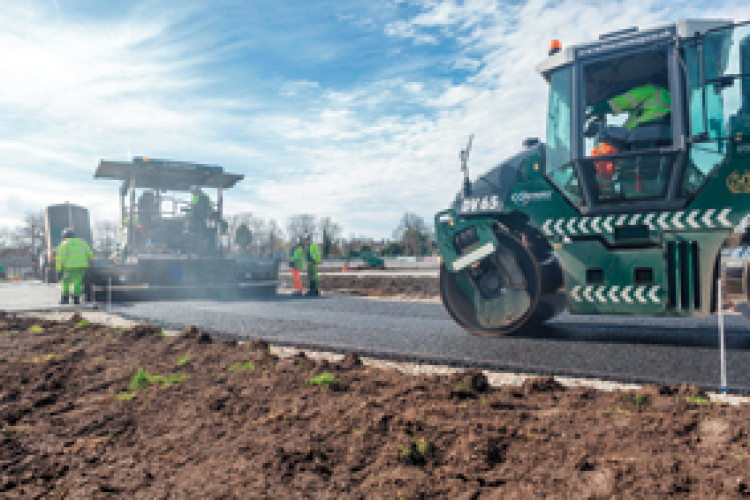We all know that prevention is better than cure; and not surprisingly, highways maintenance is no exception. Reactive repair is needlessly expensive whereas planned, strategic management is far more cost-efficient. Pot holes make a good case in point. Per square metre, pot holes are at least twenty times more expensive to fill than resurfacing the same area of road before it reaches breaking point. And yet in 2013 the UK filled in over two million pot holes – treating the symptoms after failing to deliver preventative measures.
Smarter asset management is increasingly on the agenda for highways teams. The UK’s local road network is estimated to be worth £300bn and the industry needs to treat it as the major asset that it is.
The government certainly seems to agree. For example, the Department for Transport’s discussion document Gearing up for efficient highways delivery and funding, published in January, suggests that 10% of funding allocations for councils from 2015 could be dependent on the presence of up-to-date asset management strategies.
Part of the management of that asset is how best to use the materials involved, says David Smith, development director for road maintenance contractor FM Conway. “There’s huge embedded value in our roads’ material composition, which is continually removed and replaced in the course of highways maintenance works,” he says. “That’s a huge, uncharted, ever-changing, ever-evolving resource.”
Asphalt is 100% recyclable. The aggregate and binder can both be fully re-used. Smith says that, as a rough estimate, the UK’s mature road network could contain 2 billion tonnes of asphalt that could be recycled as part of the ongoing maintenance programme.
“In effect it means that roads can be their own quarry, and if we’re to move towards more of an asset management model of road repairs, we’ve got to start treating these materials with greater sophistication,” says Smith. The industry has made great strides in road recycling over the past decade but Smith says the approach has too often been sporadic and opportunistic.

“I believe we have to move to a point where annual plans for roads recycling underpin how we treat our highways networks. We need to set out what the roads contain, when they will be maintained, and how those materials can be re-used elsewhere. And we need to do it on a street-by-street basis,” he says. To do this effectively requires a detailed analysis of the composition of existing roads, which can be done with existing coring techniques. The blackstuff is far more complex than it looks, says Smith. Different aggregates and different binders in varying combinations mean that planings are often fit for some jobs but not for others. Cross sections of a road can reveal the quality, quantity, value and best future use of asphalt planings. “We can use this insight to match the materials with forthcoming projects,” says Smith.
FM Conway is currently developing this approach with a number of London boroughs, compiling a database of their road material assets for use in future maintenance projects and carrying out a cost-benefit analysis of logistics and storage costs. The company, which claims to recycle 100% of all road planings, already processes an estimated 200,000 tonnes per year to produce Type 4 sub-base. Smith believes that this approach should be at the heart of any asset management strategy. “We believe it’s a valuable improvement in terms of cost, sustainability and, crucially, for oversight of the asset base and compatibility with long-term, planned cycles of maintenance,” he says.
The key phrase here is ‘long-term’. Budgets dictate workloads, and most highways budgets are still set annually. This is too short-term, says Smith. He says that a survey by the Asphalt Industry Alliance found that 98% of authorities would prefer longer funding allocations, with 53% specifically identifying five-year funding cycles as the optimum length of time to allow for a more strategic approach. Over 30% thought 10 years or longer was the optimum. “As we move towards a more strategic approach to road asset management, I believe we’ve got to make every effort to better understand what they contain, and how materials can be re-used,” says Smith. “Prevention is better than cure, but it’s diagnosis that gives us the platform we need to work from. For roads, that will mean knowing our assets, collecting the data, and giving highways teams the insight they need to unlock value from roads recycling.”
This article first appeared in the April 2014 issue of The Construction Index magazine, which can be viewed in full at: http://epublishing.theconstructionindex.co.uk/magazine/april2014/
While the magazine is free to view online, a subscription is required to receive you own hard copy every month. This can be purchased for just £35 a year at http://www.theconstructionindex.co.uk/magazine
Got a story? Email news@theconstructionindex.co.uk
.png)


